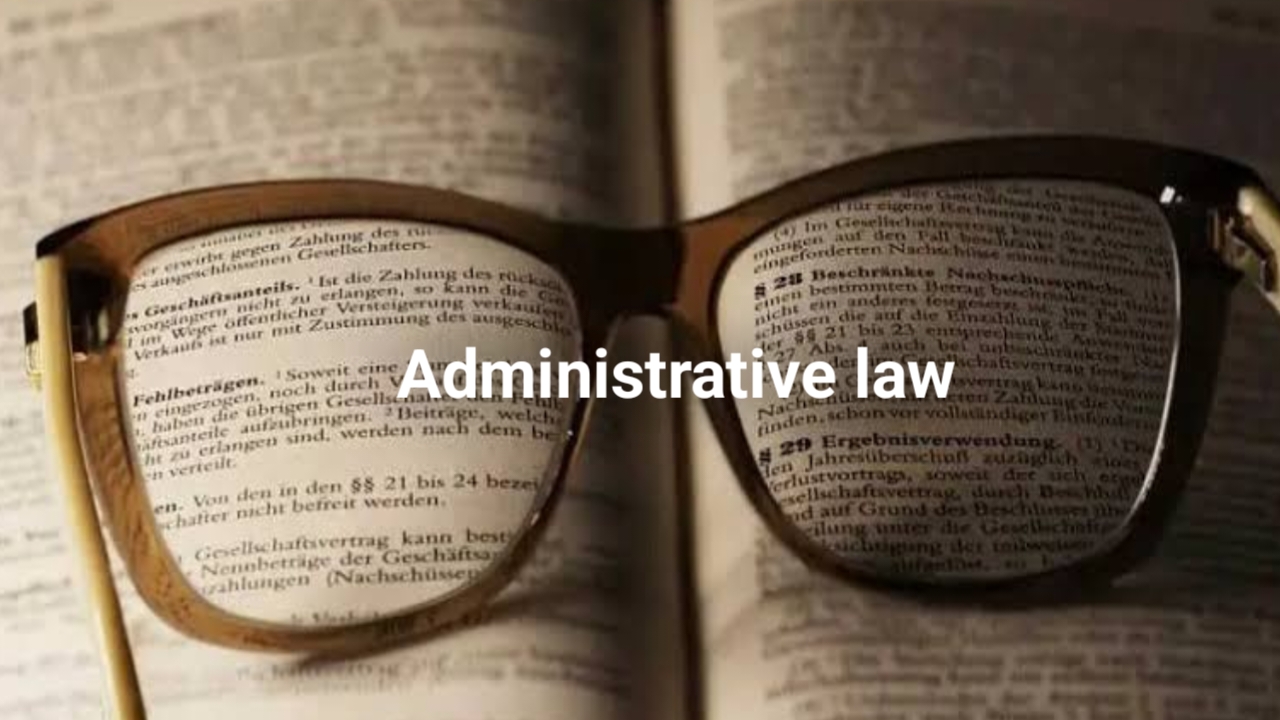Discretion, Choosing amongst various options( amount of power to used under in any authority provided). from various available alternative with reference to non- predetermined criteria.
Two types of delegation ( control over) Discretion
- Control at the stage level of delegation of discretion.
- Excercise of discretion( judicial behaviour and Administrative Discretion)
- If a person is doing his work at his authority and position it is exercise of discretion.
- A person is tranfering his duty or work with a authority to some other person it is a delegation of discretion.
Article 14 Right to equality ( discretion)
Case: State of west bengal v/s anwar ali sarkar 1952.
Judiciary confers to the state government if you have any case which needs speedy trial it will directly go to the special court, it was wrongly exercised the delegation because it was clear that there is hirachy of the court and things should be run properly.
Case: State pf punjab v/s khemchand
It was held that a person can not use their authority in a arbitrory manner because one of the DM in punjab lend a private truck of the person khemchand and after that did not pay him sufficiently.
Article 19 Right to freedom
Case: himmatlal k. shah v/s commission of police 1973 SC.
In Bombay police act, 1951 a police have a right to give or denial the permission for the gathering of people in streets, or the public meeting it was held that even if you have a discretion but you are answerable and reasons should be valid.
At the stage of exercise of Discretion
Formulation regarding the exercise of discretion are grouped into two broad generalisation.
Authority is deemed not to have exercised its discretion at all or failure to exercise discretion.
It has not exercised its discretion properly or excess or abuse of discretion.
Doctrine delegation non potest delegation
Meaning: A delegation can not delegate his power further.
Case: Purtabpur company limited v\s cane commissions of Bihar 1970 SC.
You are not authorised to use your power in a wrong way. 99 villages which were restricted by the plaintiff to manufacture sugarcane by the demand of CM.
Improper use of Discretion(Abuse)- India( English law)
unreasonableness of the discretion – usa (codified)
Case: Indian Railway construction limited v/s Ajay kumar 2003 SC
If you are the authority to do any work you should have to entertain that authority.
How to follow the Discretion( Rule making)
Delegated legislation
Subordinate legislation because supreme central authority delegation its power to the sub- ordinate authority (state) to (sub- ordinates) .
1973 to 1977 the first legislation was delegated.
Scope of delegated legislation
Wide gerenal power- For small- samlle acts, parliament or legislation will delegate its power to its sub- ordinates, not to everyone it can delegate its power but to its own sub-ordinates, because they don’t have soo much time to make laws on small powers so they widening their general power.
Taxation
All the laws related to taxation are made by the sun-ordinates.
Power to varry acts of parliament
Amendment related rules, it may ammended because if any laws does not have effects.
Judicial behaviour/ control
Right to equality, right to freedom, failure to exercise and excess or abuse of discretion.
Legislative control
Direct control: parliament make laws directly yhrough two legal tests.
Special control- by special authority or laying off.( Simple, affirmative, negative)
Technicality- The who are law maker are the only person or department who knowns that how to and where to make rules regarding to what.
Emergency power ( discretion)
by some natural emergencies in the society not as a country, that we have to quik change the rules as per the requirement of the society.
types of Delegated Legislation
Title based (discretion)
While making any act, rules, regualtions, act enact written in general clause act 1897, Rules( Theory), regualtion(implimented). Order( Quasi or judicial, legislative decision), Bye laws( rule made by semi- governmental legislations). Direction( central government asked to state government to make laws regarding some regualtion by some legislation)
Central government if doing anything then till advised state government will not interfere in it., because constitution gives power to central government to give direction to state government.
Direction is a term of administrative rule making under the authority of law or rules made there under.
Direction
Scheme: Situation where law authorises administrative agencies to lay the work. Frame work within which the deatioled administrative actions is to proceed.
Discretion based/ condition based
under the option of the authority to do any work.
Case: Field v/s clarke 143 US 1892 in this case presiddent have the discretion to give free to the citizens, negliently distributed some of the products which lends the country at downfall congress/ court held that you canot do any arbitrary act.
Purpose based legislation
(example Enabling act: UGC makes rules or act to present and manage but the management needs to present it in such a manner) extension and applicability of act, dismissal or suspension of any law, alternation of acts, taxation.
Authority based classification
If you delegated your power it should be delegated to the superior authority.
Maxim- ” delegatus non potest delegare” means you can not delegate your power/ authority until it specififically mentioned in parent act.
nature based delegation
Positive delegation- where the provision of the enabling acts are mentioned clearly.
negative delegation- where the things are not clearly mentioned and have some exceptions for the acts.
Exception delegation -: Power to legislate on matter principle, power confering such a wide discretion which is almost impossible to know the limits, to ammend the rule of parliament, make rules without being challenged in the court of law.

